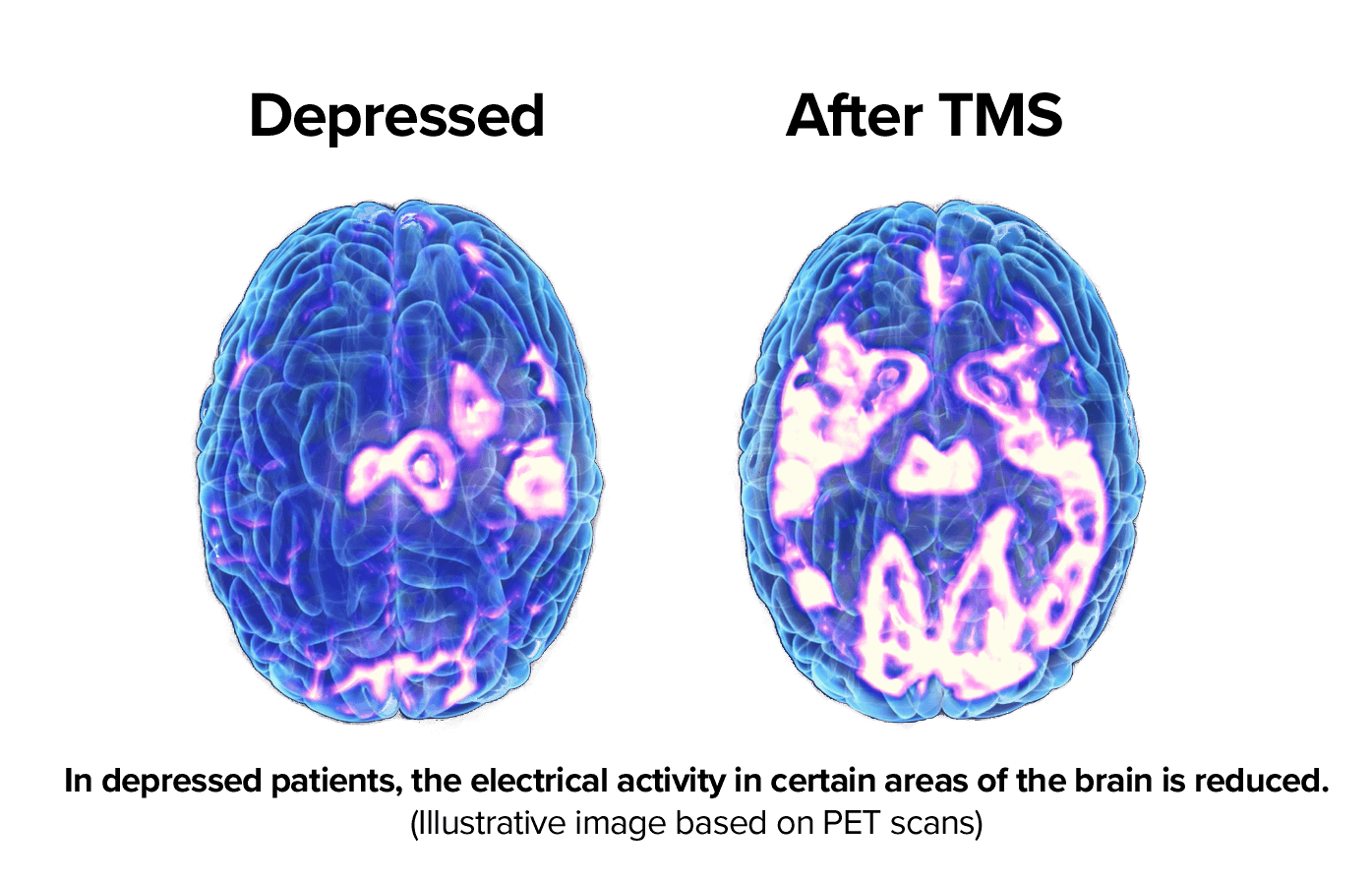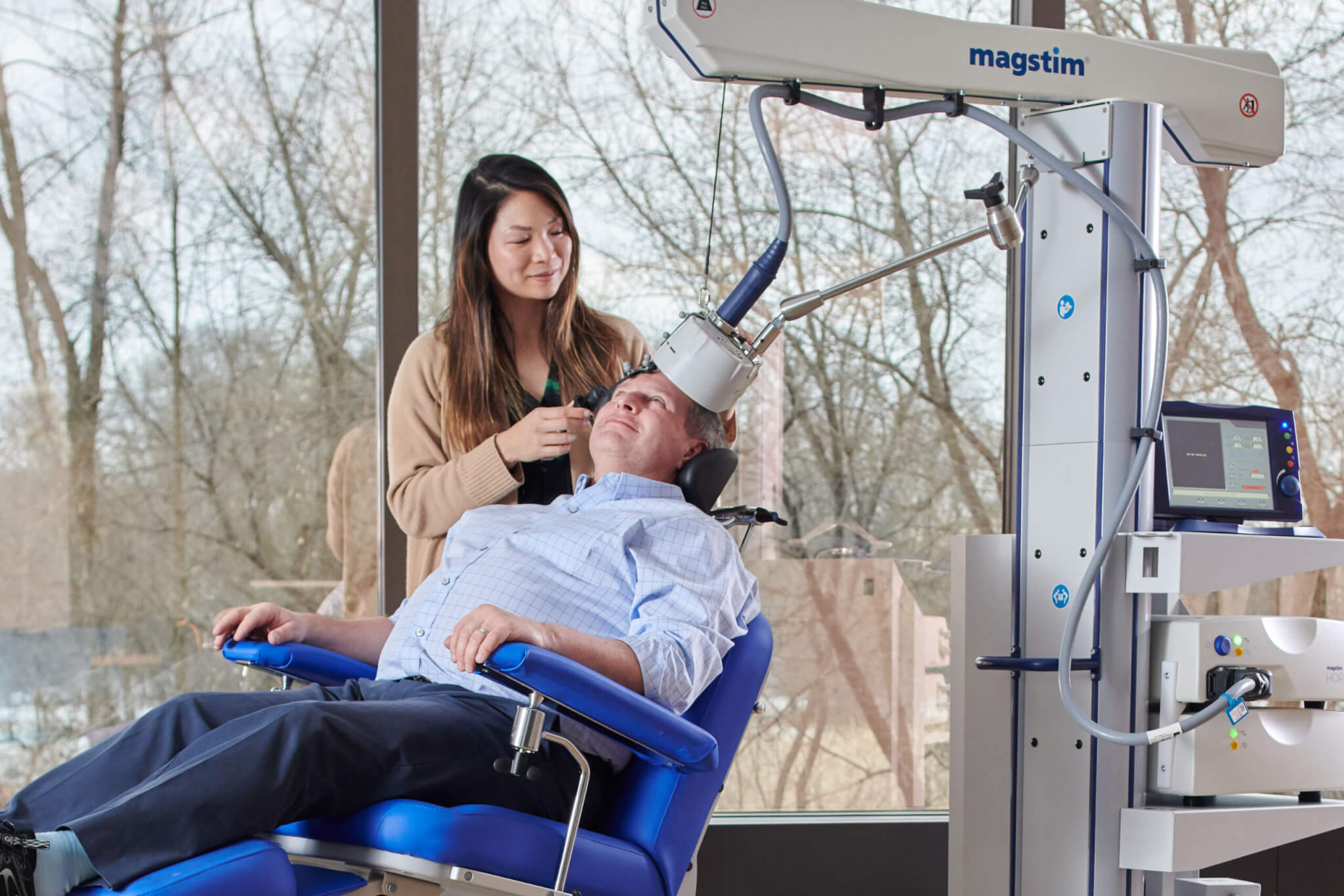TMS Therapy
For many people dealing with Major Depressive Disorder (MDD), antidepressants have proven to provide adequate symptom relief enabling them to resume the life they once enjoyed. However, some patients experience a form of MDD known as Treatment-Resistant Depression for whom standard medications tend to provide little to no relief.
Approximately 58% of patients with treatment-resistant MDD respond positively to TMS therapy! TMS therapy involves the use of short pulses of magnetic energy to stimulate nerve cells in the brain. These pulses are delivered to the area in the brain that researchers believe are responsible for emotional judgment and mood regulation. All of our TMS Therapy is performed with a Dr. in the office to ensure a safe treatment environment.
More About TMS therapy
While there are several theories about what causes depression, the condition most likely results from a complex interplay of individual factors, one of the most widely accepted explanations cites abnormal brain chemistry.
Researchers have suggested that for some people, having too little of certain substances in the brain (called neurotransmitters) could contribute to depression. Restoring the balance of brain chemicals could help alleviate symptoms, Transcranial Magnetic Stimulation (TMS) is non-invasive and nonsystemic (non-drug) method to help restore this balance.


FDA Cleared
TMS Therapy devices have been FDA Cleared for the treatment of Major Depressive Disorder since 2008.
Non-Pharmaceutical
TMS Therapy is non-systemic therefore is not associated with drug-related side effects such as weight gain, drowsiness, sleeplessness, stomach upset, or sexual problems.
Non-Invasive
TMS Therapy does NOT involve surgery, insertion of intravaneous lines or anything else put into your body.
Covered By Insurance
TMS Therapy is covered my most major insurance providers including Medicare (and Medicaid in some states).
Outpatient Treatment
TMS Therapy does not impair cognitive function, so patients can resume their usual routine after treatment.
